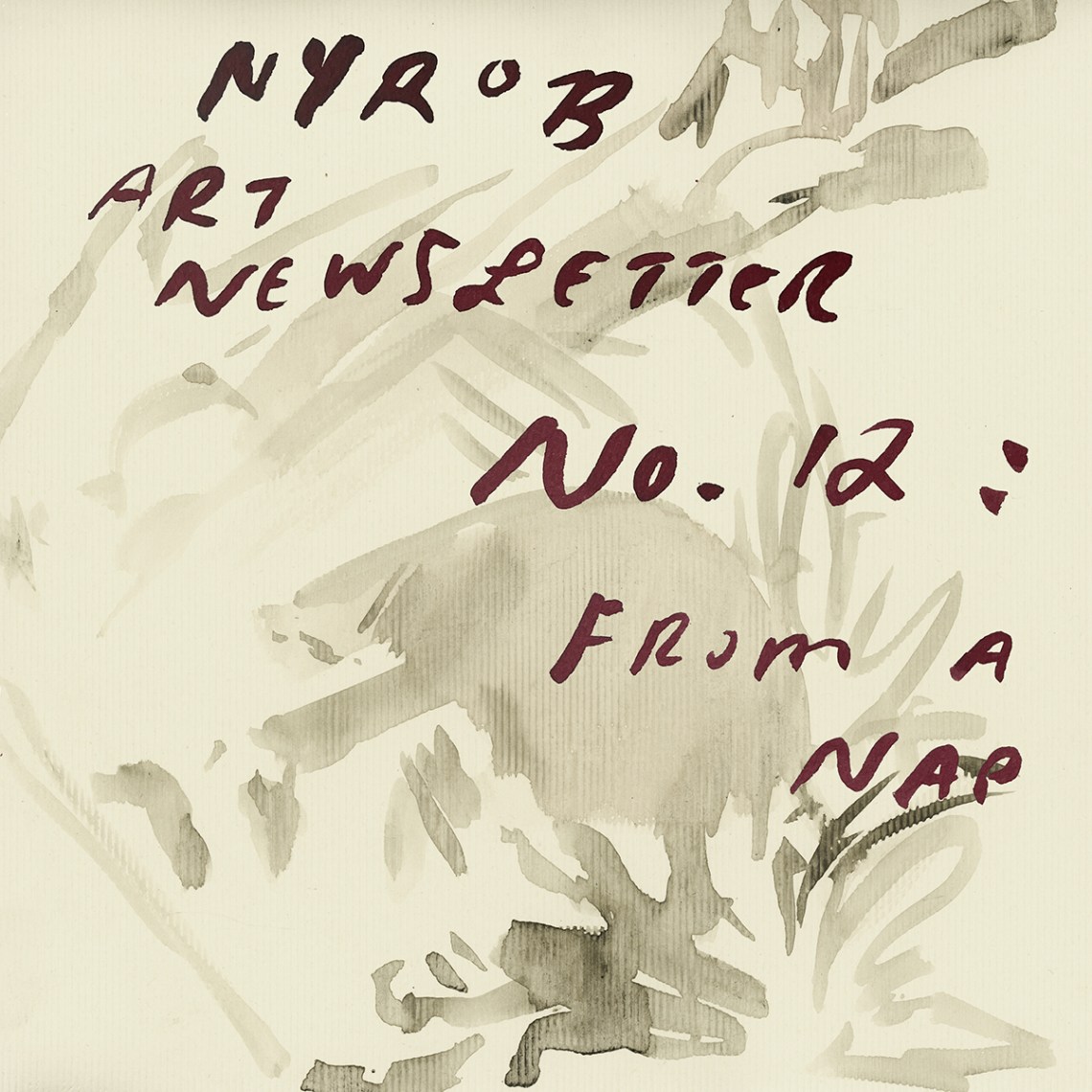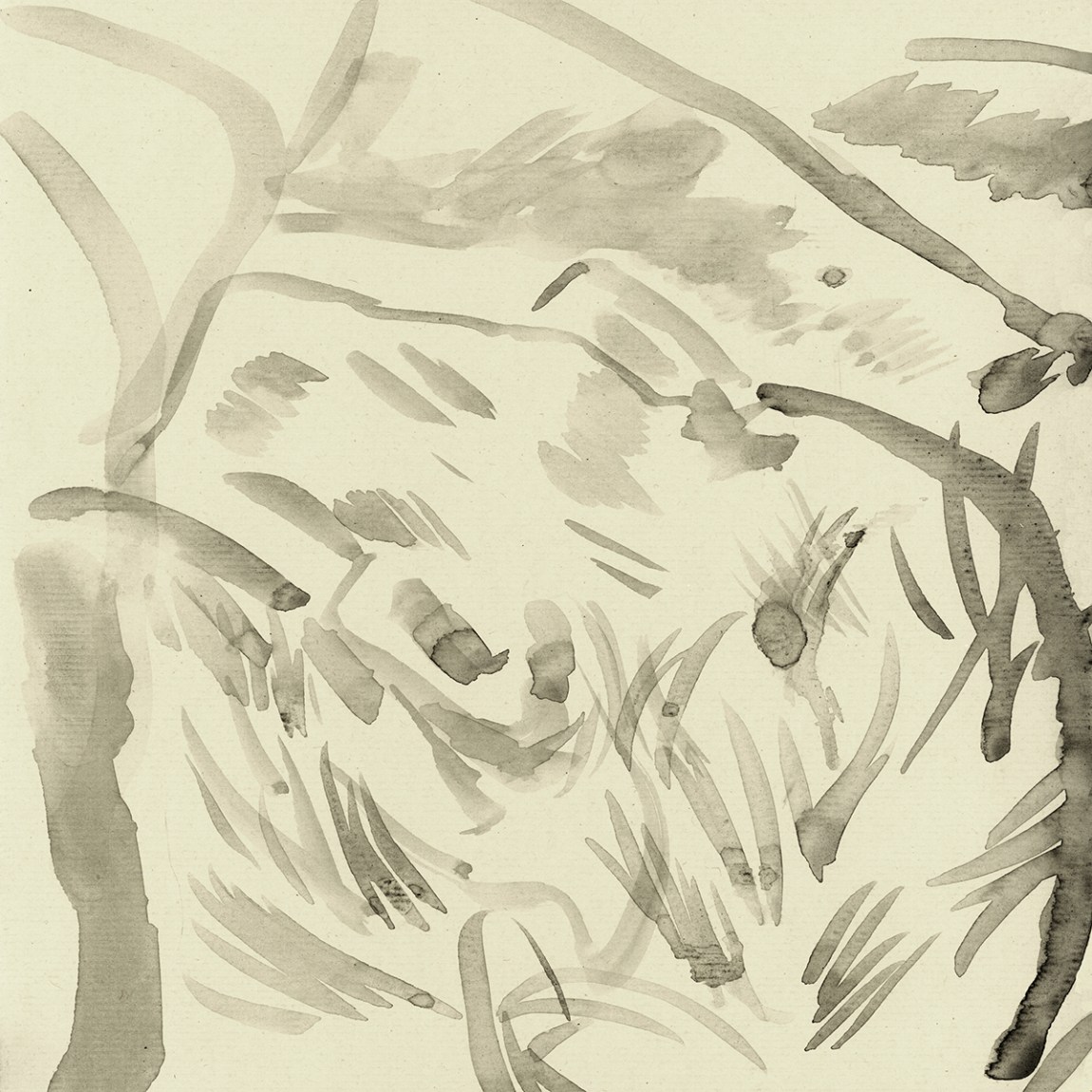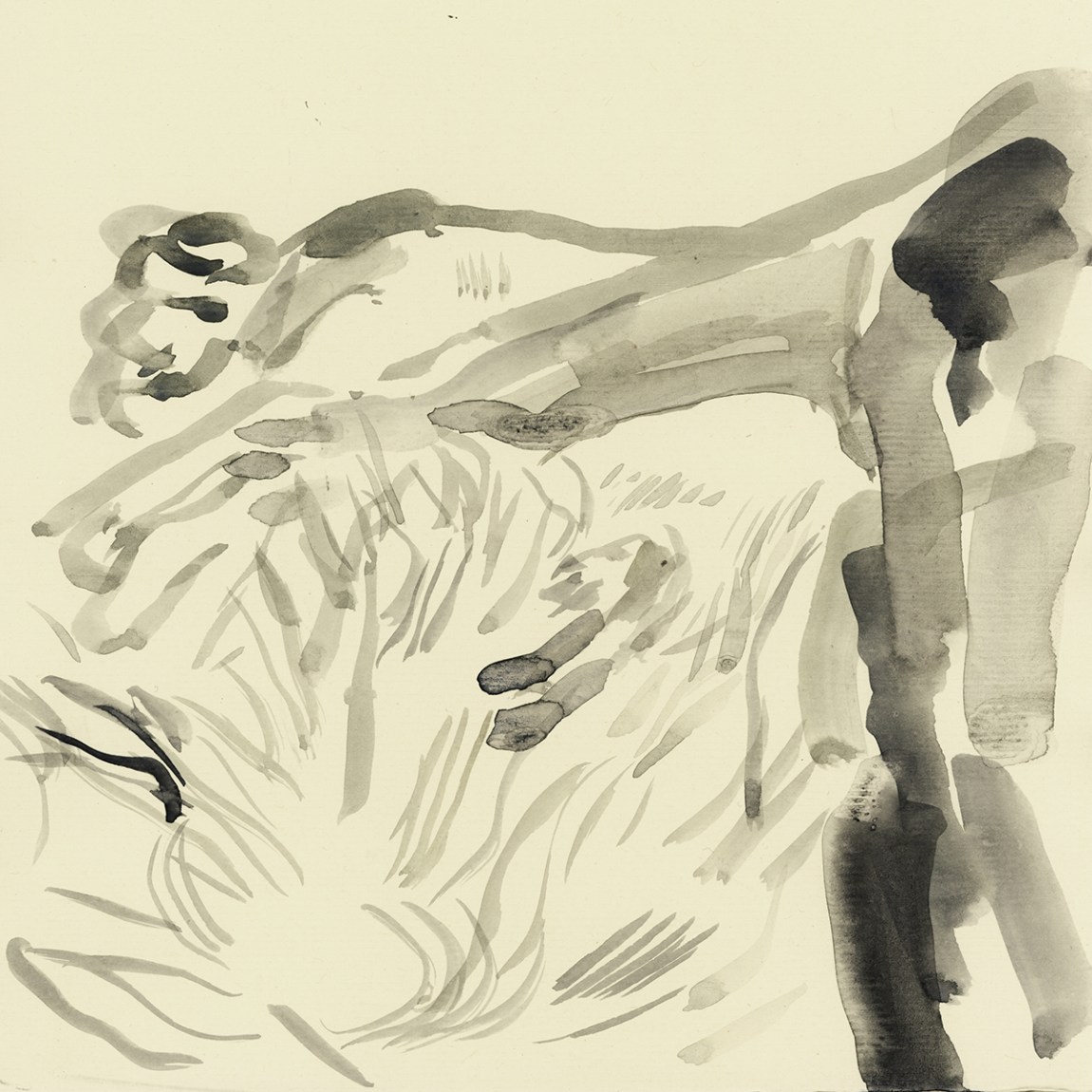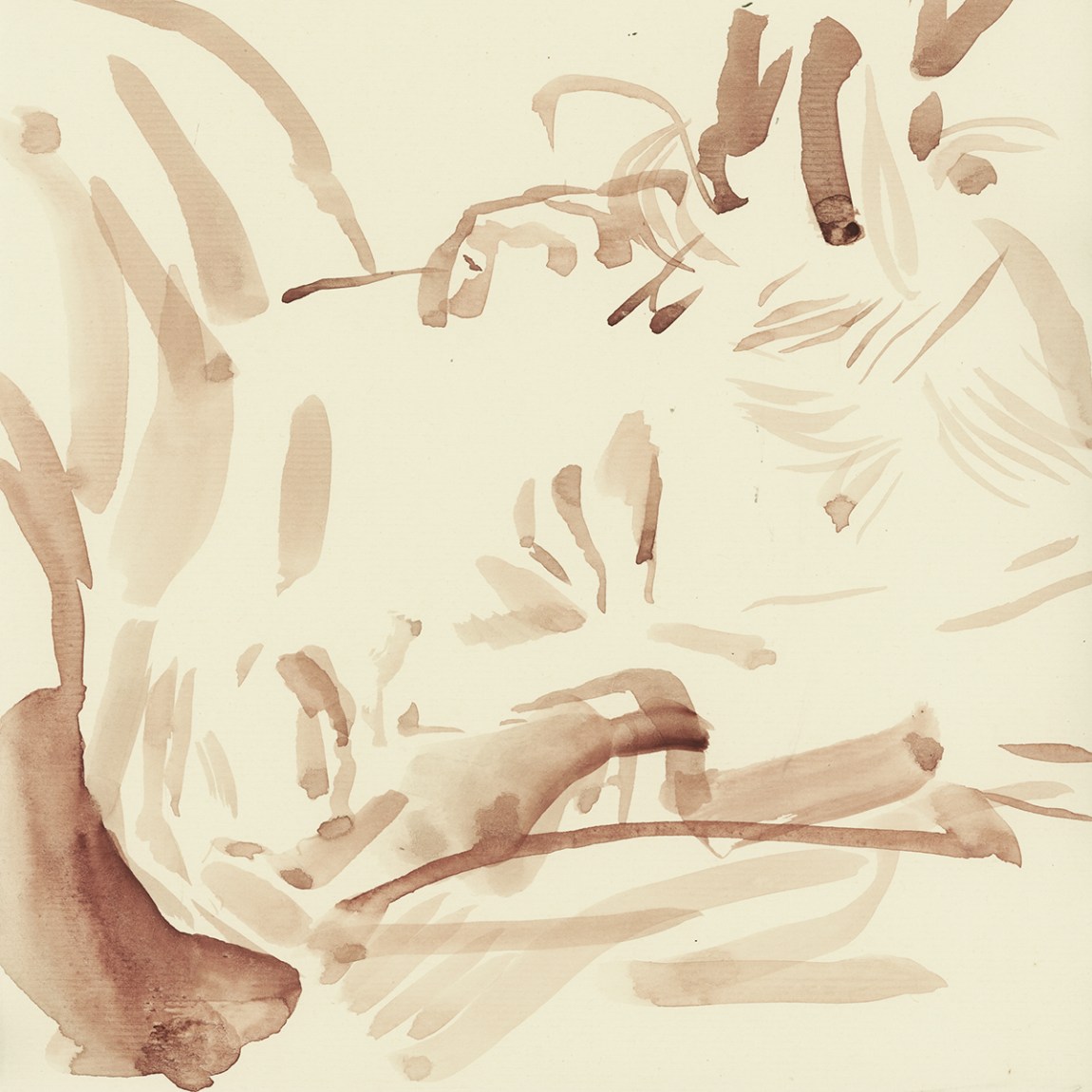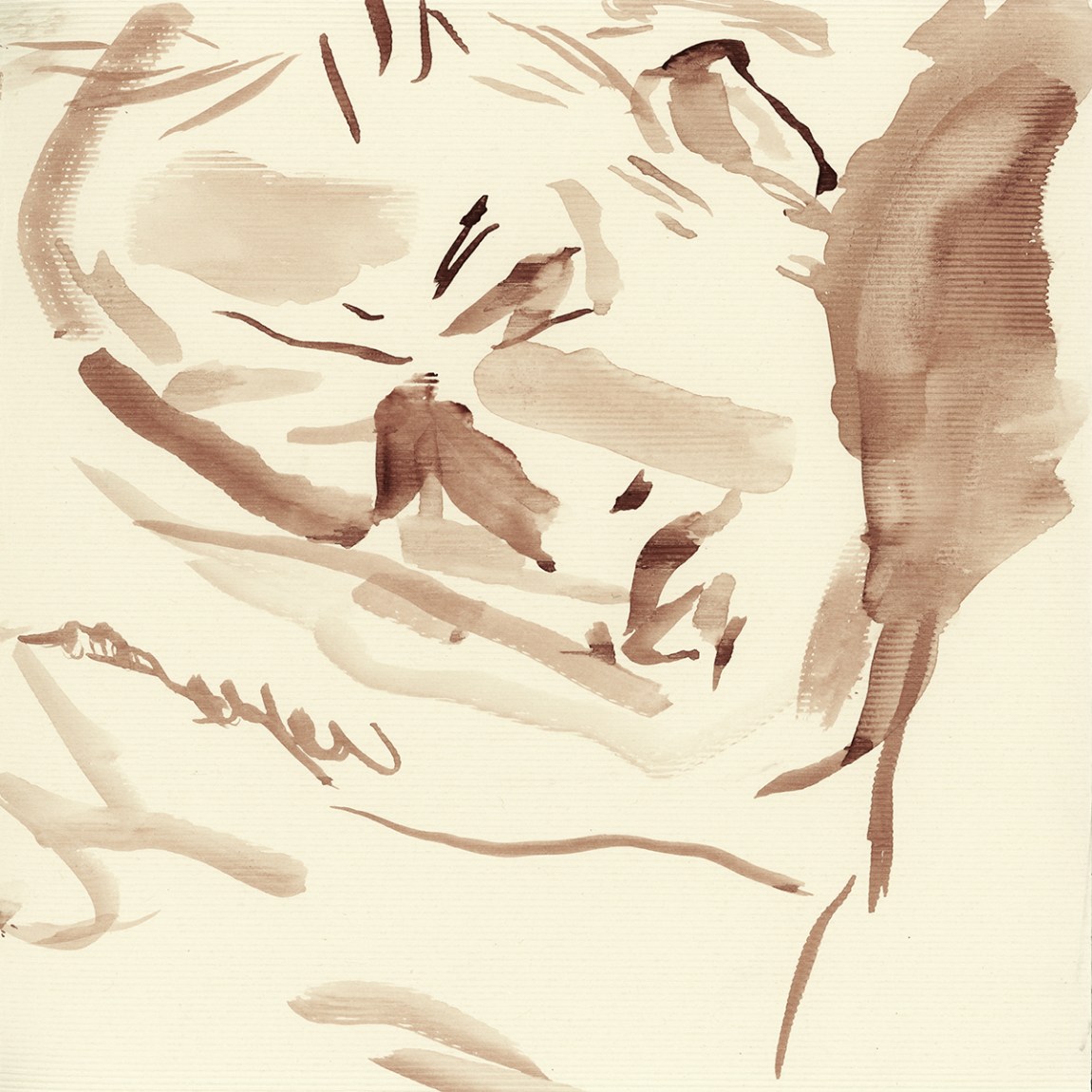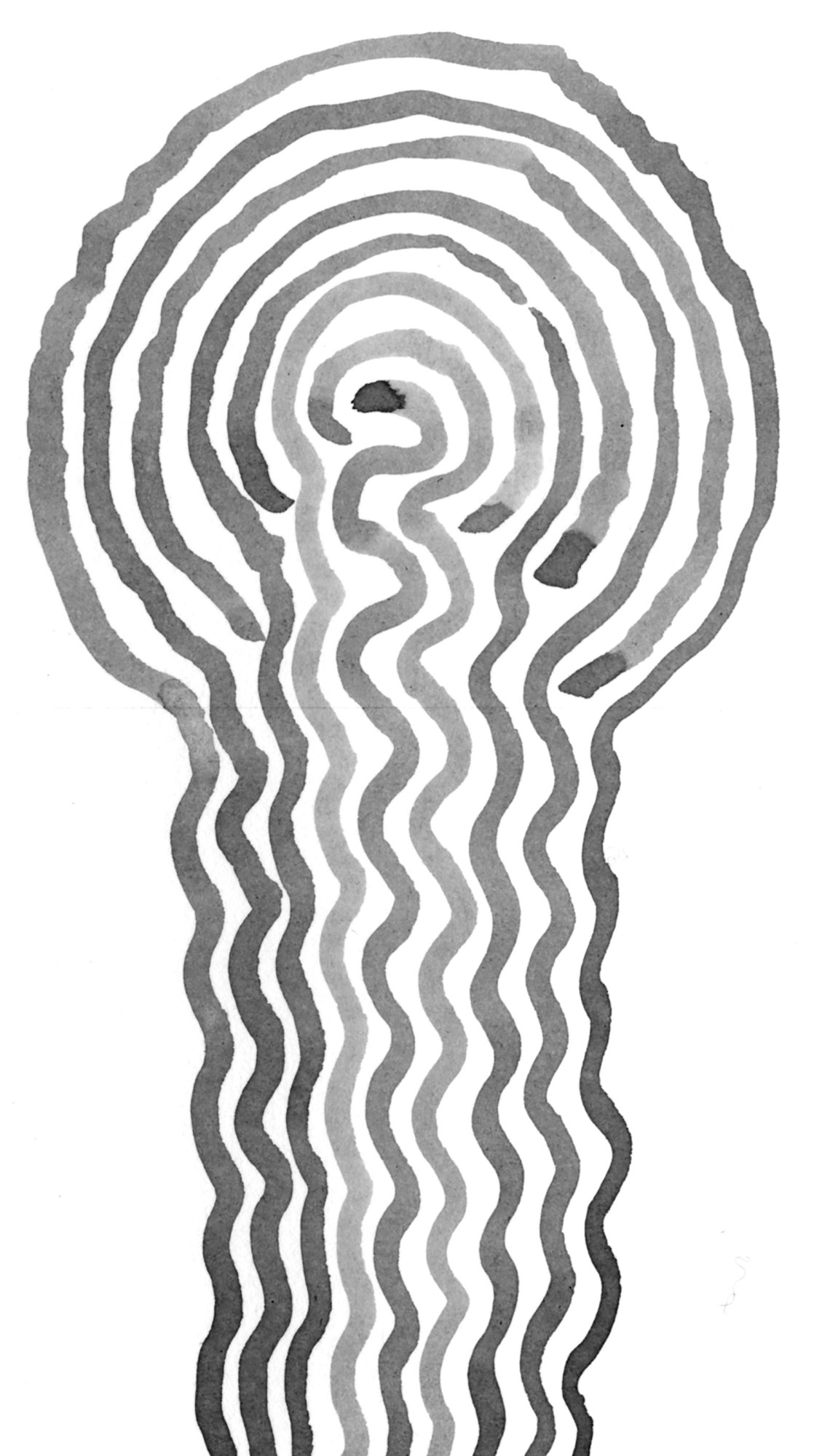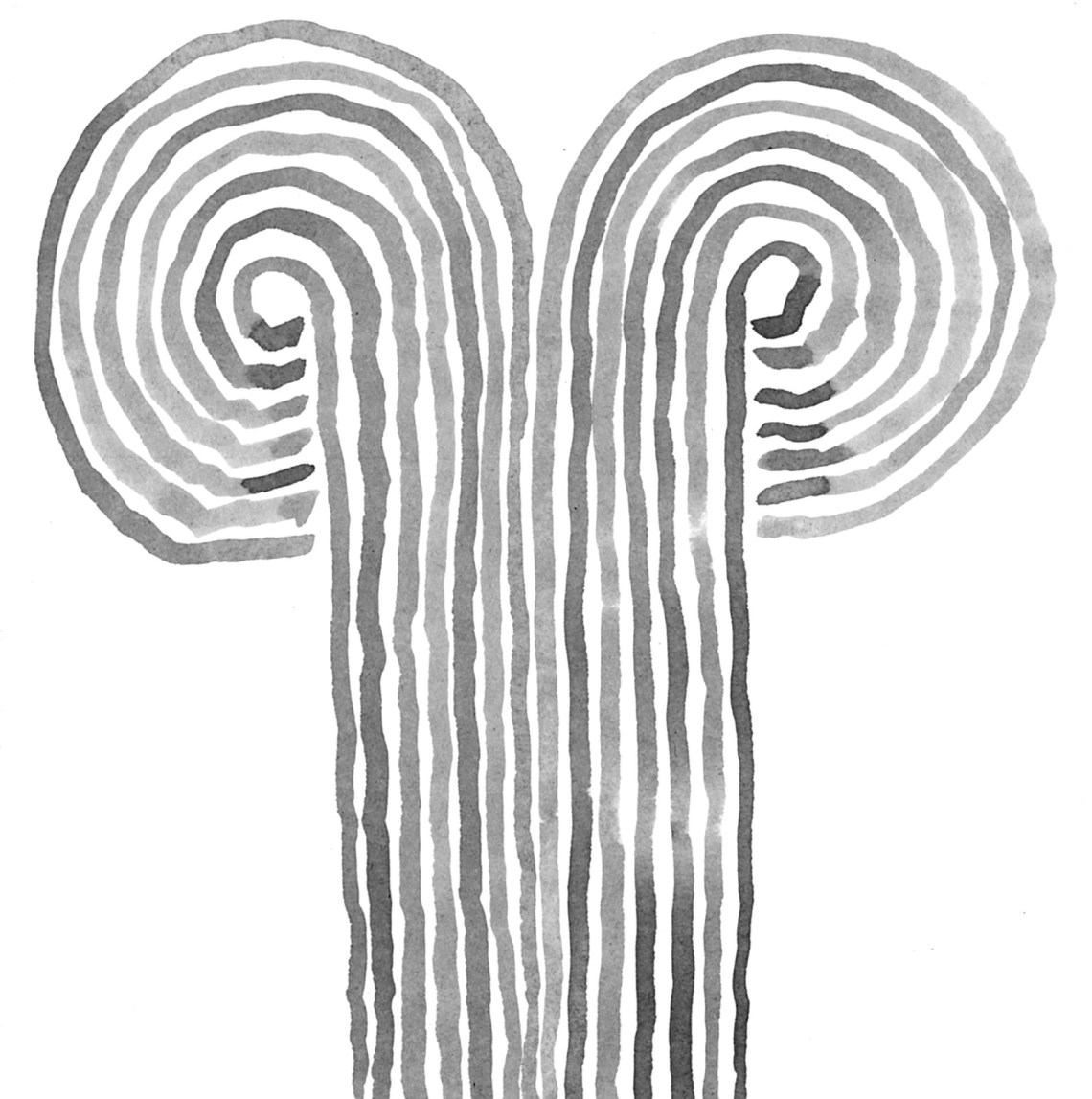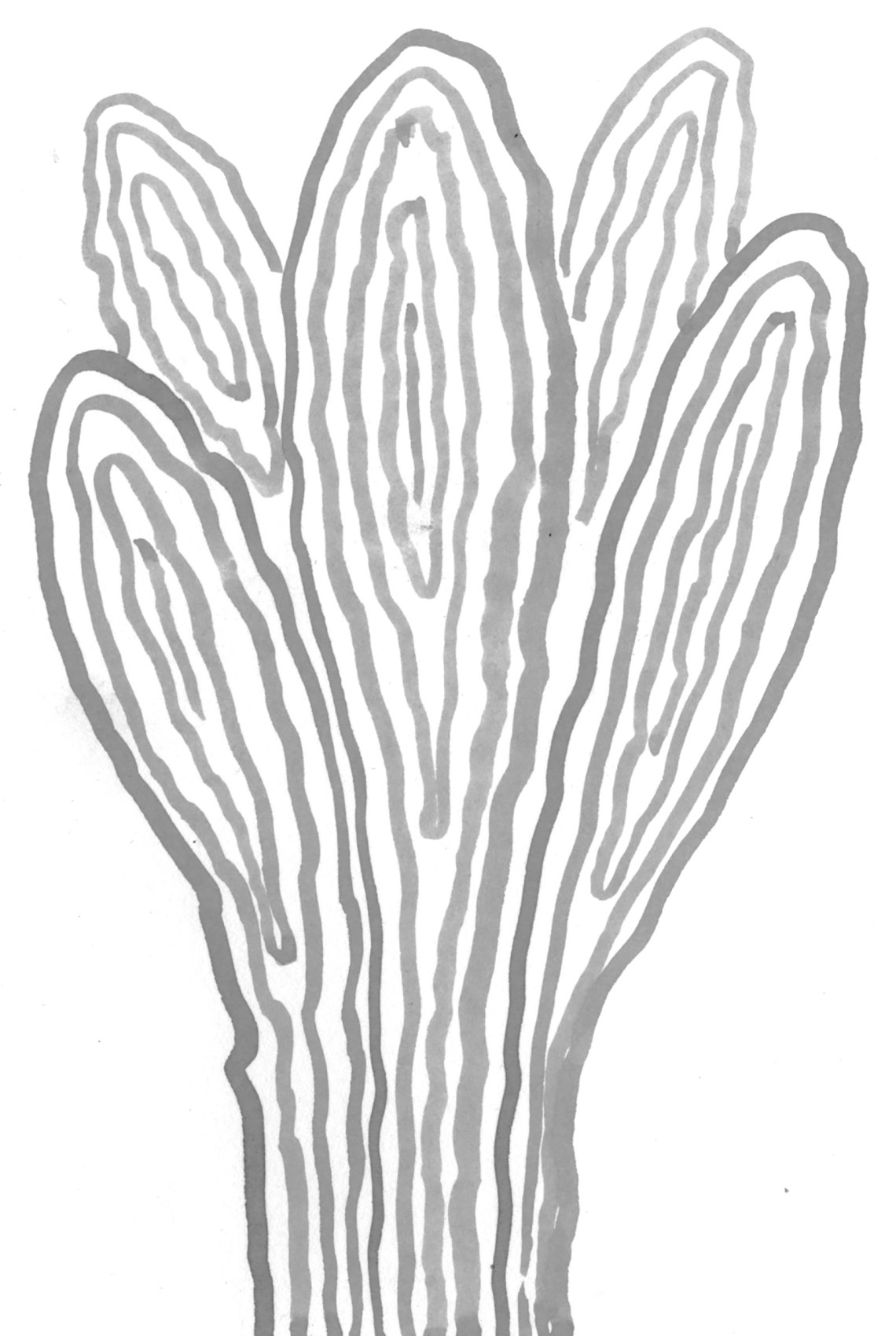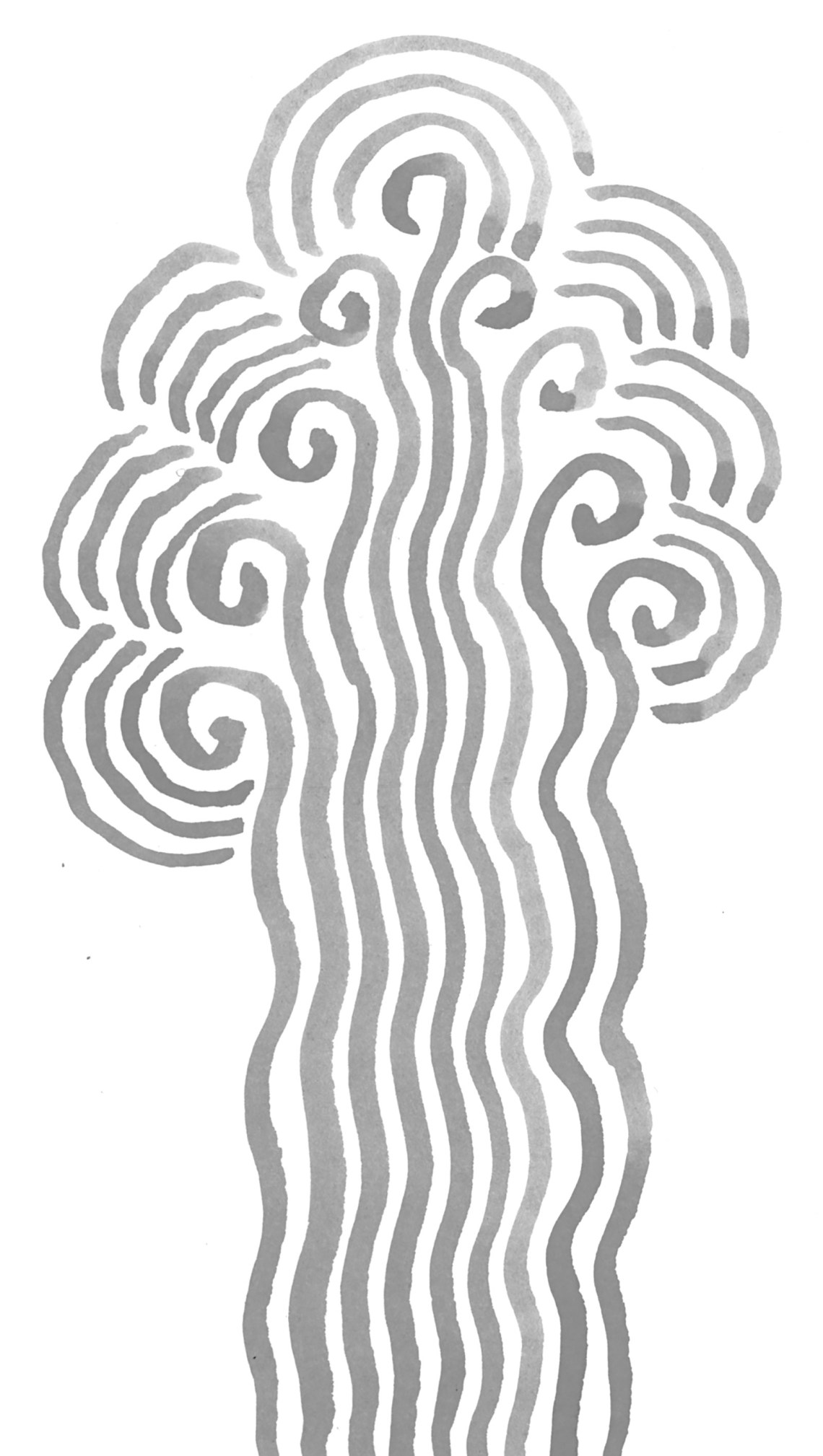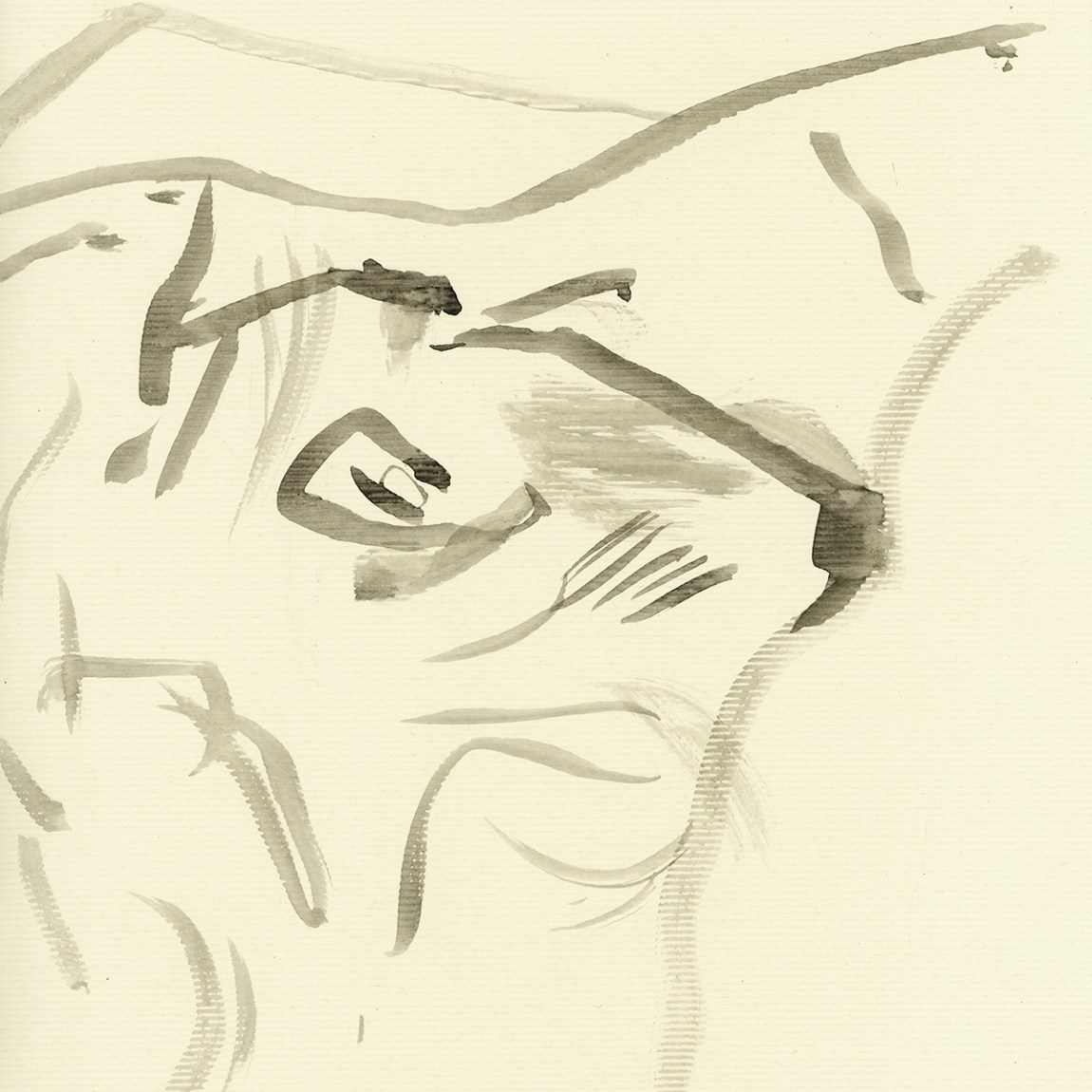We closed the 2023 Summer Issue during the second half of July, amid showers, humidity, Beanie Babies, and Barbie. I’ve been drifting off to sleep above the covers with a fan pointed directly at me, or deep under a duvet in an air-conditioned room. A New York summer nap is an escape like no other. My midsummer dreams are vivid this year; I think of a song my brother sent me, “Sleep All Summer” by the now-defunct Crooked Fingers, which I considered including on a bedtime mix. In advance of a bookstore event I’m doing with the writer Chloe Aridjis, I’m reading her collection Dialogue with a Somnambulist, which feels adjacent to our Summer Issue with its stories of nightmarish Parisian rats, invisibility, saints, sisters, and sloths.
The painting on the cover, titled Deep Water (2021), is by the Montgomery, Alabama–born painter Danielle Mckinney. Gripping the sandpapery edge of a diving board with her geranium-painted nails, a woman dangles above a deep pool of dark blue water. I loved its feeling of simultaneous tension and relief. Inside, the issue opens with a review of two books about Paris’s rat catastrophe, written by Madeleine Schwartz and illustrated by Emmanuel Pierre, two Parisians with firsthand experience of the infestation. Once Pierre had turned in his final file, he wrote to say that he’d had fun collaging the rat-lottery street scene.
Speaking of creepy-crawlies, following the Schwartz is Andrew O’Hagan’s review of all four seasons of Succession and its newly published scripts. We decided not to use a still from the show, and instead I asked Tom Bachtell for a family portrait of the Roys, the tycoons at the center of the show. As usual, Bachtell’s wonderful line nails and skewers his subjects.
For Ed Park’s review of several works by the Hungarian writer Ágota Kristóf, I asked the Norwich-based illustrator Maya Chessman for a portrait. On seeing the sketches, senior editor Eve Bowen asked for some element of the macabre, in keeping with the gloomier strains of Kristóf’s novels and plays. Chessman darkened her palette and added some flies.
Gary Younge wrote about frequent Review contributor Colin Grant’s unsparing memoir of his family, and I asked another regular, the Nashville-born artist Johnalynn Holland, for a portrait of Grant. Holland presented Grant decked in a colorful dashiki, a small smile playing on his lips. The Barcelona-based illustrator Ciara Quilty-Harper situated the poet Robyn Schiff in the European painting galleries of the Metropolitan Museum of Art, where Schiff worked after college, for Ange Mlinko’s review of Information Desk: An Epic. And for Joanna Biggs’s review of Liliana’s Invincible Summer, a memoir by Cristina Rivera Garza about her younger sister’s murder, the Berlin-based Romy Blümel tucked Liliana’s shadow into the frame of a portrait of Cristina. With her color palette, Blümel also hints at the glitter-bomb protests against femicide led by women in Mexico City.
When I read James Gleick’s review of books about invisibility and transparency, I immediately thought of the Dutch artist Ruth van Beek, whose folded paper, cutouts, and collages play with concealment, obfuscation, and a certain surreality, all themes in Gleick’s essay.
For Laurence Tribe’s review of five books that grapple with the future of the Supreme Court, we once more turned to my fellow Canadian expat Geoff McFetridge and his archive of oblique metaphors. A teeter-totter metaphor aligns with Tribe’s ideas of justice and power.
For the issue’s series art, I wrote to the Italian illustrator, designer, and architect Guido Scarabottolo, who sent a handful of drawings, titled Viaggo in Islanda, that he’d made in 2017. They were unintentionally evocative of the explosions in Sean Wilentz’s piece on Timothy McVeigh and Ursula Lindsey’s essay on the aftermath of the 2020 disaster at the port of Beirut.
But back to napping. I add Irma Thomas’s “It’s Raining” to my bedtime mix, because “it looks like it’s gonna rain all night.” The idea at the heart of political theorist Adom Getachew’s review of Howard French’s Born In Blackness—the importance of reconsidering the contributions of Africans to Western history—has stuck with me since I read it in July. Getachew expanded on this idea and others in her interview with Nawal Arjini for our Brief Encounters newsletter. Her words make me think about sleepwalking through history, and how dreams and nightmares can scramble our preconceived understanding of the world, informing a new consciousness. As Getachew explains: “Encounters with the past might wrest us free from certain patterns of thinking.”


